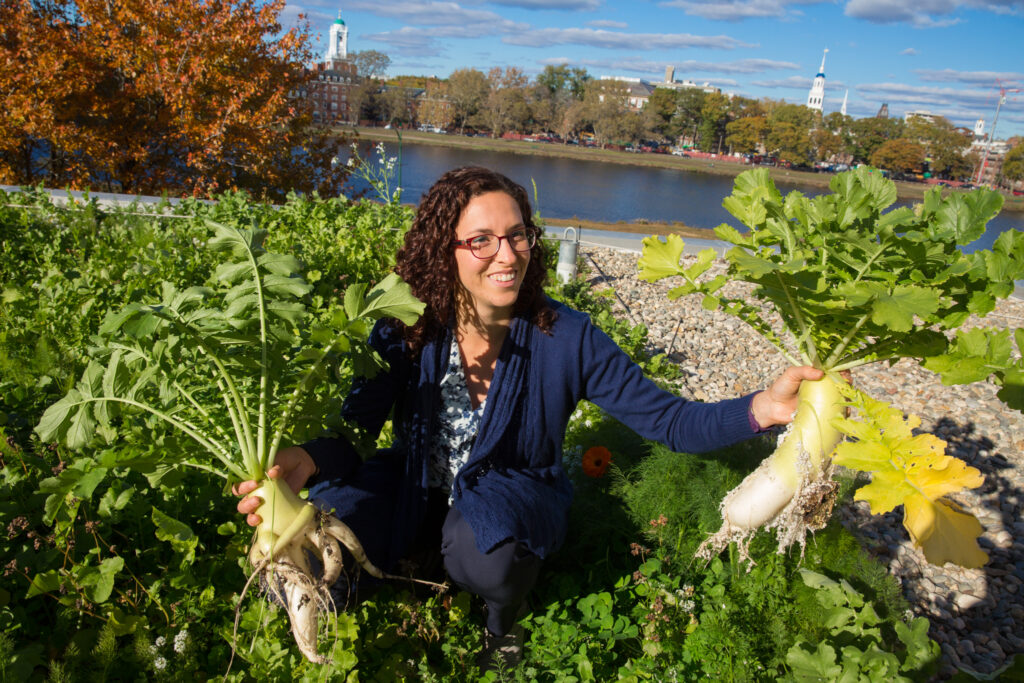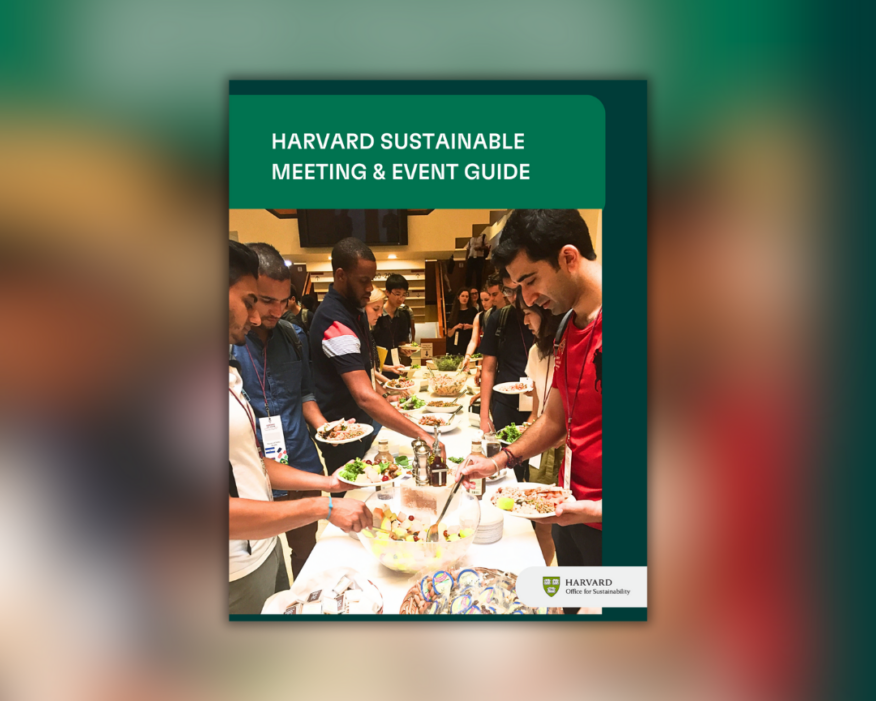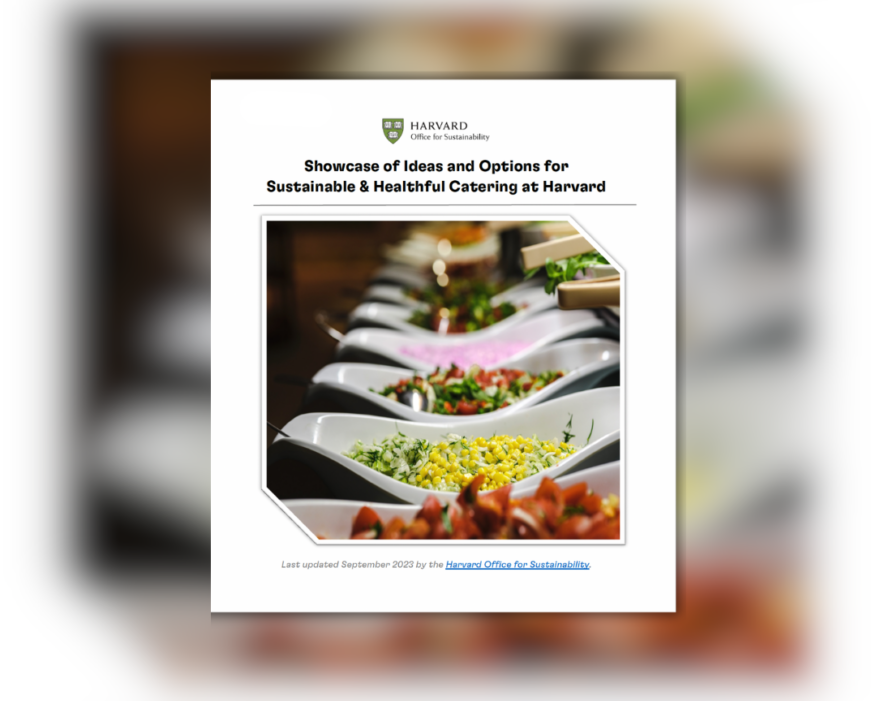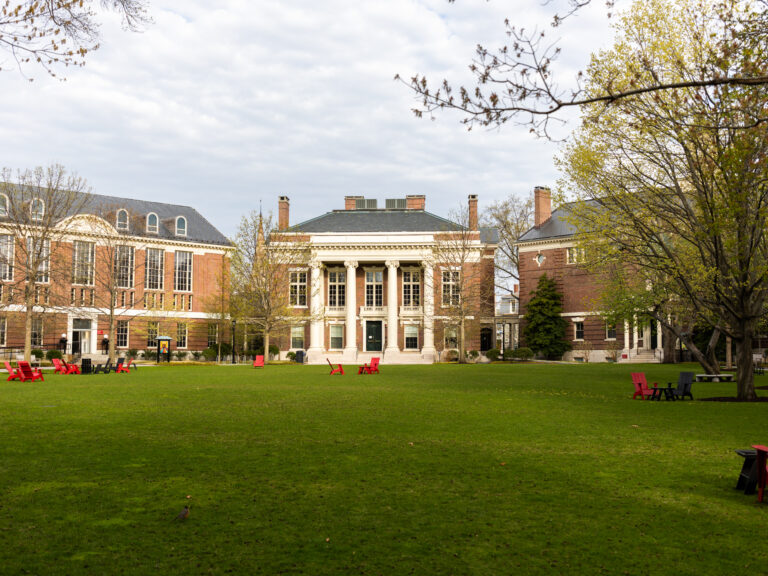How to Create:
Sustainable Meetings & Events
At Harvard, our goal is to cultivate a culture of health and sustainability in how we plan campus meetings and events, providing opportunities for staff, students, faculty, and visitors to eat well, stay active, and reduce waste while advancing the University’s sustainability goals. By implementing best sustainability practices into everyday meetings and events, we take an important step to support the inclusive well-being of our community and others globally, both now and in the future.
Sustainable Meeting and Event Guide:
In the full Sustainable Meeting and Event Guide, which was developed by a team of students and staff from the Harvard T.H. Chan School of Public Health and the Harvard Office for Sustainability, you will find resources such as:
- Guidance for organizing sustainable and healthful catered meals
- Strategies for incorporating movement, reducing waste, and more
To supplement the Meeting and Event Guide, the Harvard Office for Sustainability has assembled a Showcase of Ideas and Options for Sustainable and Healthful Catering at Harvard. Though not an exhaustive list, this guide is intended to inspire and educate Harvard catering purchasers and event organizers to select sustainable meal options.
Highlights from the Sustainable Meeting & Event Guide:

- Showcase plant-based proteins (like beans, lentils, or tofu) paired with vibrant flavors, ideally as the default main dish.
- Offer drinks without single-serve packaging, such as fruit-infused pitchers of tap or filtered water
- Ask caterers to label common allergens, such as nuts, dairy, sesame, and shellfish.
- Serve whole grains instead of refined grains (for example, brown rice instead of white rice), and ask caterers to cook with healthful oils like canola or extra virgin olive oil.
- When offering snacks, feature nutritious plant-based items like fresh fruit, hummus with crisp vegetables, and nuts.
- Coffee and tea (with plant-based milk as an option) after a meal can leave guests satisfied. For a special treat, consider dark chocolate-covered fruit or bite-sized vegan baked goods.
- Whenever possible, choose reusable items. When single-use items are necessary, ask your caterer to use clearly-marked compostable or recyclable serving items.
- Make sure your meeting room has a “waste station” with identifiable compost, recycling, and trash bins.
- Periodically break up sitting time with standing, walking, or light stretching. Ensure there are options for all abilities.
- When appropriate, collect RSVPs to help determine how much food to order. For very large events, pre-arrange food donations with your caterer.
Why Make Meals Greener By Default?
Animal products, especially red meat and dairy, generally have higher environmental impacts compared to plant-based foods.

The mission of the “Greener by Default” is simple: Offer plant-based food as the main meal, but let attendees optionally add animal products when they RSVP. For buffet events, serve at least twice as many delicious plant-based dishes compared to meat dishes.
Institutions that have adopted Greener By Default as a formal food policy report significant overall reductions in their consumption of animal products, without restricting diners’ options.
Sustainable Meetings & Events
By following the tips in this guide, you can create more sustainable meetings, conferences, and events that prioritize the wellbeing of people and the planet.
Download Harvard’s Sustainable Meeting & Event GuideOpens new window

Showcase of Ideas & Options for:
Sustainable & Healthful Catering at Harvard
This guide highlights some creative and delicious offerings from on-campus vendors that align with Harvard’s Sustainable Meeting & Event Guide.
This showcase is intended to inspire and educate Harvard catering purchasers and event organizers, but it is not an exhaustive list. We encourage you to peruse our vendors’ menus for their full offerings.

Healthful and Sustainable Food
Harvard pledges to reduce greenhouse gas emissions from food by 25% by 2030 as part of Coolfood Pledge.

